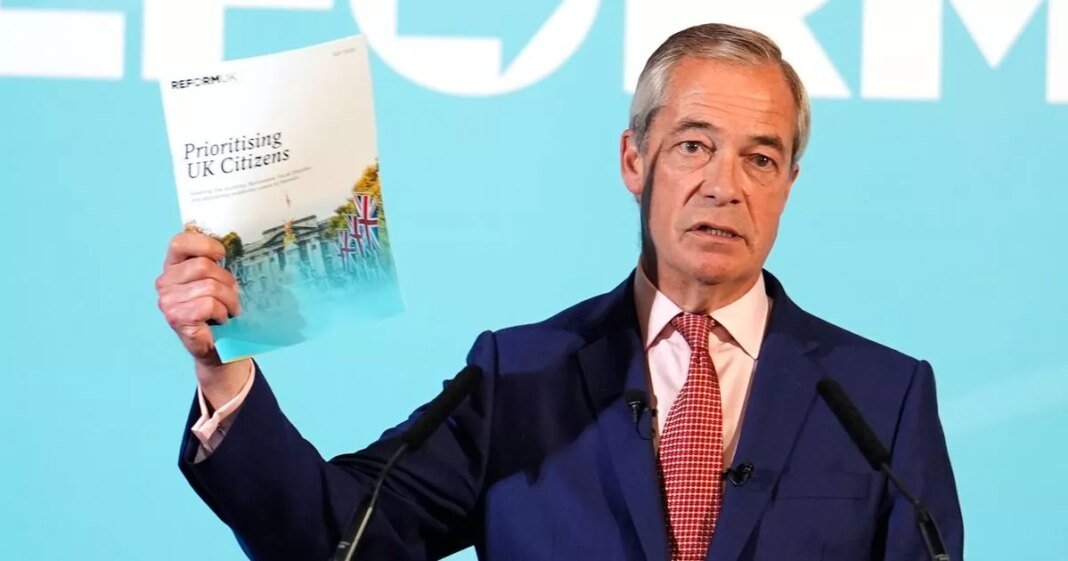Nigel Farage has unveiled a new plan to tighten regulations on migrant rights and welfare entitlements. The Reform UK leader proposed eliminating indefinite leave to remain for migrants if his party, currently with 5 MPs, gains power.
Under the proposed changes, migrants who arrived in the UK under the relaxed post-Brexit rules introduced by Boris Johnson’s government are set to qualify for permanent residency starting in January. Reform UK estimates that from 2026 to 2030, approximately 800,000 new migrants could secure indefinite leave to remain. However, critics quickly dismissed the plan as unrealistic and lacking a solid foundation shortly after its announcement.
Indefinite leave to remain is a crucial pathway to citizenship, requiring migrants to reside and work in the UK for at least five years. It grants them the freedom to work, reside, and study in the UK indefinitely, with the option to apply for citizenship later. Additionally, it provides access to certain benefits for qualifying individuals.
Reform UK intends to eliminate indefinite leave to remain entirely, replacing it with renewable visas valid for five years. The proposed visas will have higher salary thresholds, stricter English language proficiency requirements, and prohibit beneficiaries from accessing welfare benefits.
Nigel Farage clarified that there would be no retroactive changes to UK citizenship status, emphasizing that once granted, citizenship remains unchanged. He asserted that the proposed policy changes could save UK taxpayers over £230 billion, as outlined in a report from the Centre for Policy Studies.
Despite criticism and doubts surrounding the projected savings, Farage reiterated the financial benefits during a recent press conference without presenting additional evidence. The Reform UK leader stressed that welfare benefits would only be accessible to UK citizens, excluding foreign nationals from such entitlements.
Regarding EU nationals with settled status in the UK, Reform UK’s policy chief indicated exceptions might be made for them regarding the proposed welfare restrictions. However, negotiations with the European Union are expected to address this issue, focusing primarily on non-EU migrants.
Moreover, uncertainties persist regarding the implications of the proposed policy changes on critical sectors like healthcare and social care, heavily reliant on migrant labor. Reform UK mentioned a potential ‘acute skills shortage visa’ for care workers but did not provide specific details on the cap or employer costs associated with the proposed visa program.

